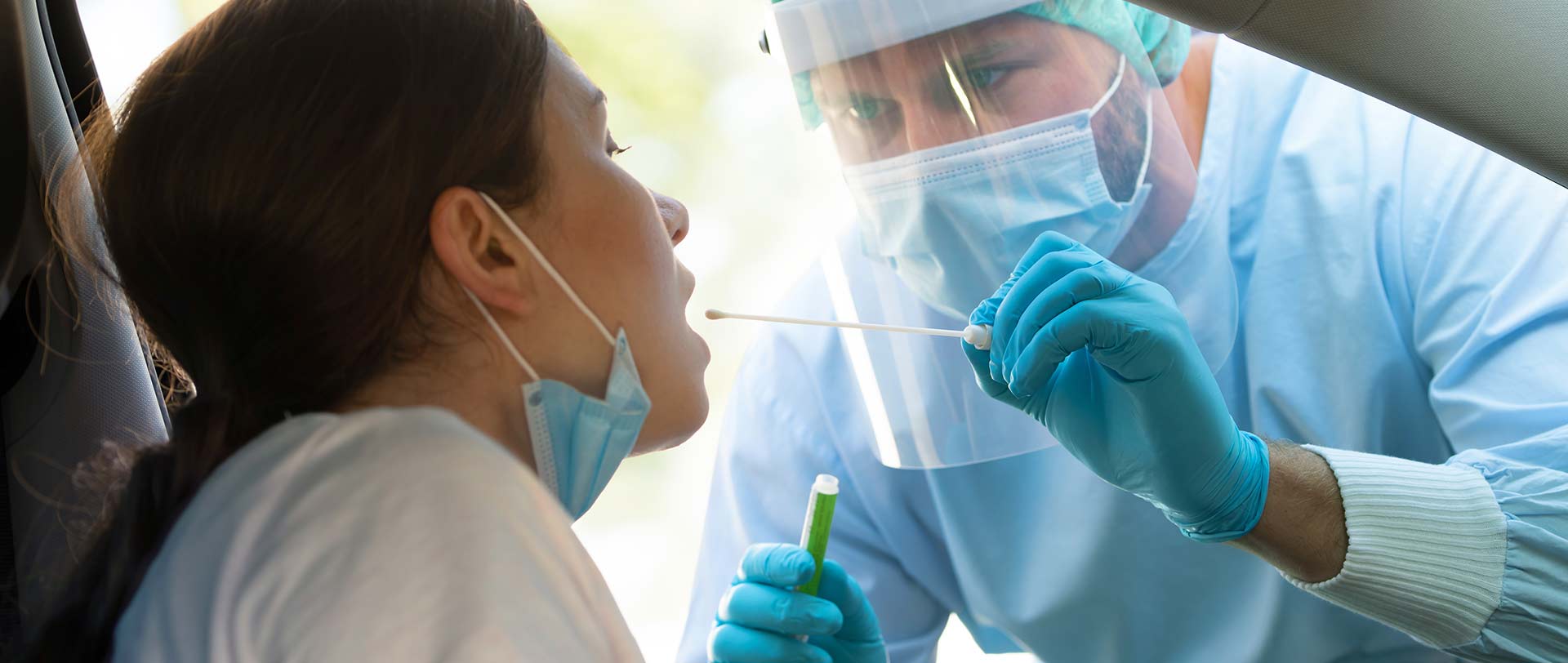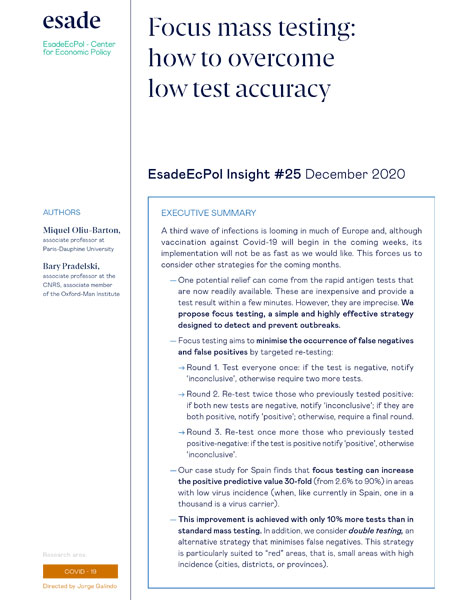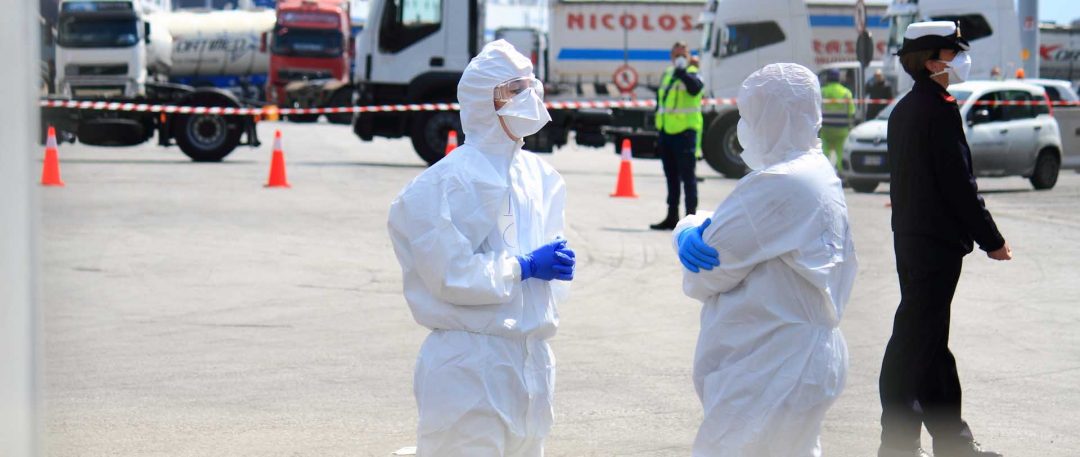
Focus mass testing: how to overcome low test accuracy
Miquel Oliu-Barton, Bary Pradelski
17 Dec, 2020
EsadeEcPol | Policy Insight
This document is part of the Covid-19 research line, led by Jorge Galindo
Executive summary
A third wave of infections is looming in much of Europe and, although vaccination against Covid-19 will begin in the coming weeks, its implementation will not be as fast as we would like. This forces us to consider other strategies for the coming months.
- One potential relief can come from the rapid antigen tests that are now readily available. These are inexpensive and provide a test result within a few minutes. However, they are imprecise. We propose focus testing, a simple and highly effective strategy designed to detect and prevent outbreaks.
- Focus testing aims to minimise the occurrence of false negatives and false positives by targeted re-testing:
- Round 1. Test everyone once: if the test is negative, notify ‘inconclusive’, otherwise require two more tests.
- Round 2. Re-test twice those who previously tested positive: if both new tests are negative, notify ‘inconclusive’; if they are both positive, notify ‘positive’; otherwise, require a final round.
- Round 3. Re-test once more those who previously tested positive-negative: if the test is positive notify ‘positive’, otherwise ‘inconclusive’.
- Our case study for Spain finds that focus testing can increase the positive predictive value 30-fold (from 2.6% to 90%) in areas with low virus incidence (when, like currently in Spain, one in a thousand is a virus carrier).
- This improvement is achieved with only 10% more tests than in standard mass testing. In addition, we consider double testing, an alternative strategy that minimises false negatives. This strategy is particularly suited to “red” areas, that is, small areas with high incidence (cities, districts, or provinces).

Read the full article:

Bary Pradelski
Associate professor of economics at CNRS and an associate member of Oxford-Man Institute
View profile


